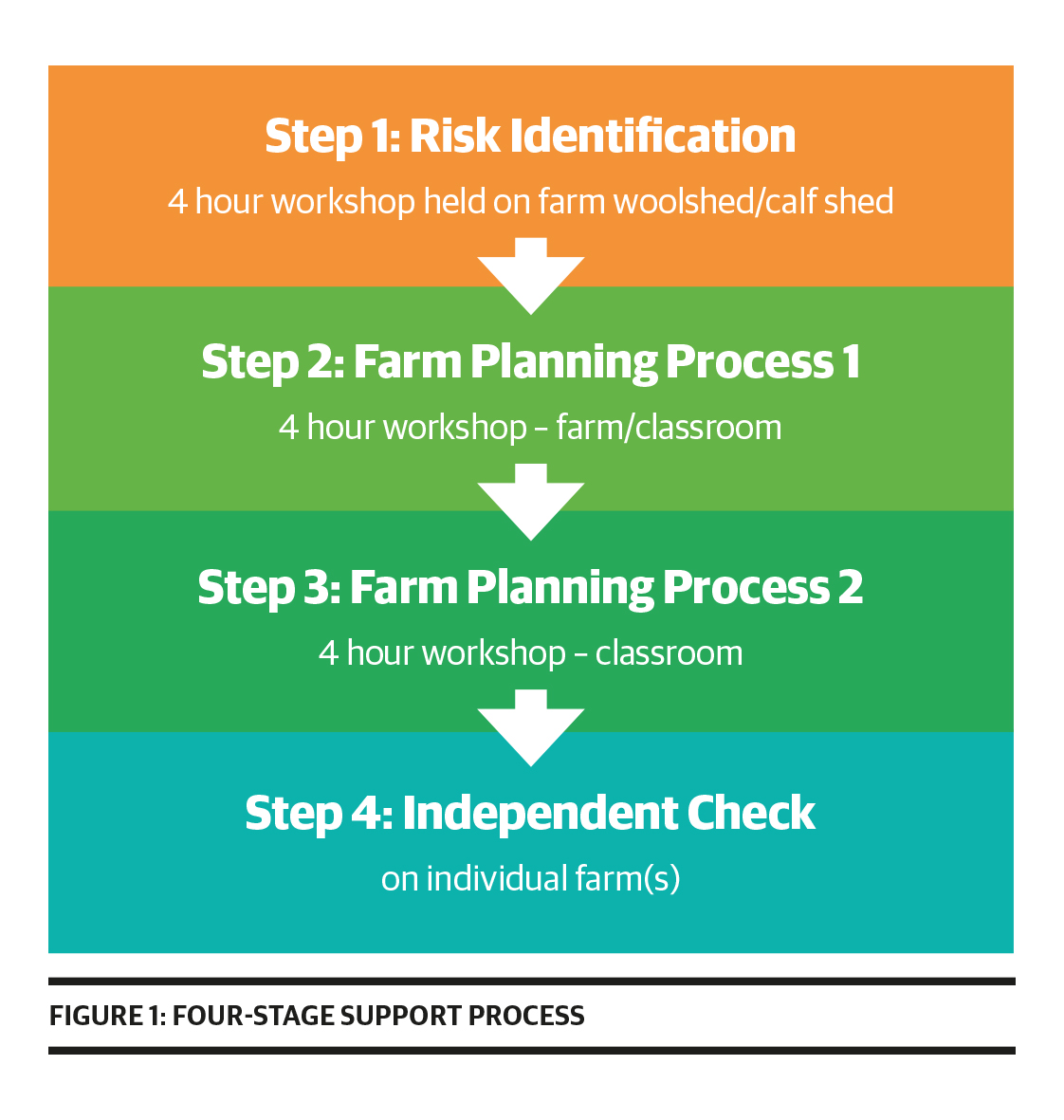Monday, 9 August 2021
Farm Environment Planning: preparing for the journey ahead
Farmers often have ideas about what they’d like to achieve on farm, but can struggle with documenting actions and prioritising them. Ravensdown Principal Environmental Consultant Adrian Brocksopp discusses how a workshop run in the Waikato helped several farmers take their first actions in preparation for Farm Environment Planning.
Farmers across the country generally accept that Farm Environment Planning (FEP) is a concept we will need to engage with over the coming years. However, for many reasons it can be hard to gain enough clarity around the FEP process to be confident in taking the first step.
This can leave farmers in a period of flux, as they are wanting to do the right thing and get started on their FEPs, but are unsure what is required, how much is enough, or what should be tackled first.
To help get farmers on the right track, the Waikato Regional Council, Open Country and a number of consultants including Ravensdown engaged in a pilot programme to provide farmers with a circuit breaker for the current situation.
The aim of the programme was to provide farmers with the knowledge and support to allow them to take ownership and engage in the fundamentals of Farm Environment Planning for their own farms.
To encourage this engagement, a four-stage support process was developed (Figure 1). Farmers attended three workshops where they were stepped through the process of assessing their farms for risk of potential contaminant loss and benchmarking themselves against industry-agreed 21 Principles of Good Management Practices (GMPs). They were then able to determine and prioritise actions to put in place on farm.


In between the workshops, the farmers applied their learnings to their own farms, recording information of GMPs achieved or noting potential risks for action. They were given support between sessions via a facilitator, and the process was trialled with small groups of farming families and key staff. This engagement was important as farm workers and share milkers are often in charge of implementing actions on farm that can increase or decrease risks on the environment.
As a result of the workshop, many farmers found they were well on the way to achieving GMPs without really realising it – some plan actions were simply a case of putting in processes to better provide evidence they were doing the right thing – for example getting the GPS mapping report from their Spreadmark registered spreader to show proof of placement of fertiliser application.
Documentation of our individual decision-making process is another area that can be helpful, especially when it comes to grazing management. Simply using a map to document what you do and why you do it can significantly reduce the risks of pugging and soil run off (e.g. identifying paddocks that are grazed early in the autumn due to the risk or pasture and soil damage from grazing too late) and can help demonstrate thought processes around sustainability.
After completing the workshop, farmers were able to create a Farm Environment Plan that provided them with an understanding of the change trajectory they will be working towards in the short term. Once the final details of FEP requirements are determined by central and local government, Ravensdown will be able to support farmers in the transition of this valuable exercise to the final product.
Farmers involved in the workshop say the process enabled them to take credit for the things they had already achieved on farm, gain an understanding of their individual farm risks, and finally it allowed them to create a time-based action plan based on what was practical for them to achieve.
Planning for your environmental future may be a scary thought, but support is available to help you on your journey. Taking the first step to seek support and advice from a trusted advisor will ensure you can take ownership of the process that you want for your business and farm. It is in your hands.
If you would like to talk to the Ravensdown team about getting a Farm Environment Plan started, get in touch with your agri manager or call the customer centre on 0800 100 123.
Why I’m not on my FEP journey yet:
- I'm waiting for a final plan change to be released in my region
- I need more clarity on the process
- I want a confirmed template
- I do not know what actions to do first.
What are the contaminants?
Nitrogen, phosphate, sediment and E. coli are all part of our farming systems. If they enter water courses, they can negatively influence water quality which can impact on our ability to use this vital resource for drinking water, recreational activities, such as swimming, and traditional uses for our waterways such as Mahinga Kia.
Learnings from the programme
- Beginning with the basics of understanding risk and good farm practice has helped improve plan development
- Continuous engagement is important
- Farmers need and want support in the FEP space
- Farmers have found the workshop environment useful to facilitate helping and learning from each other.


